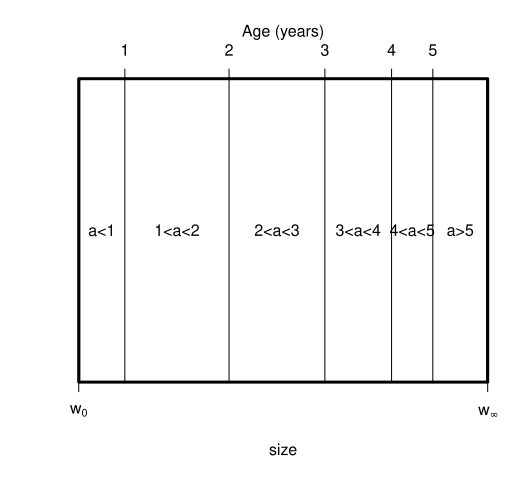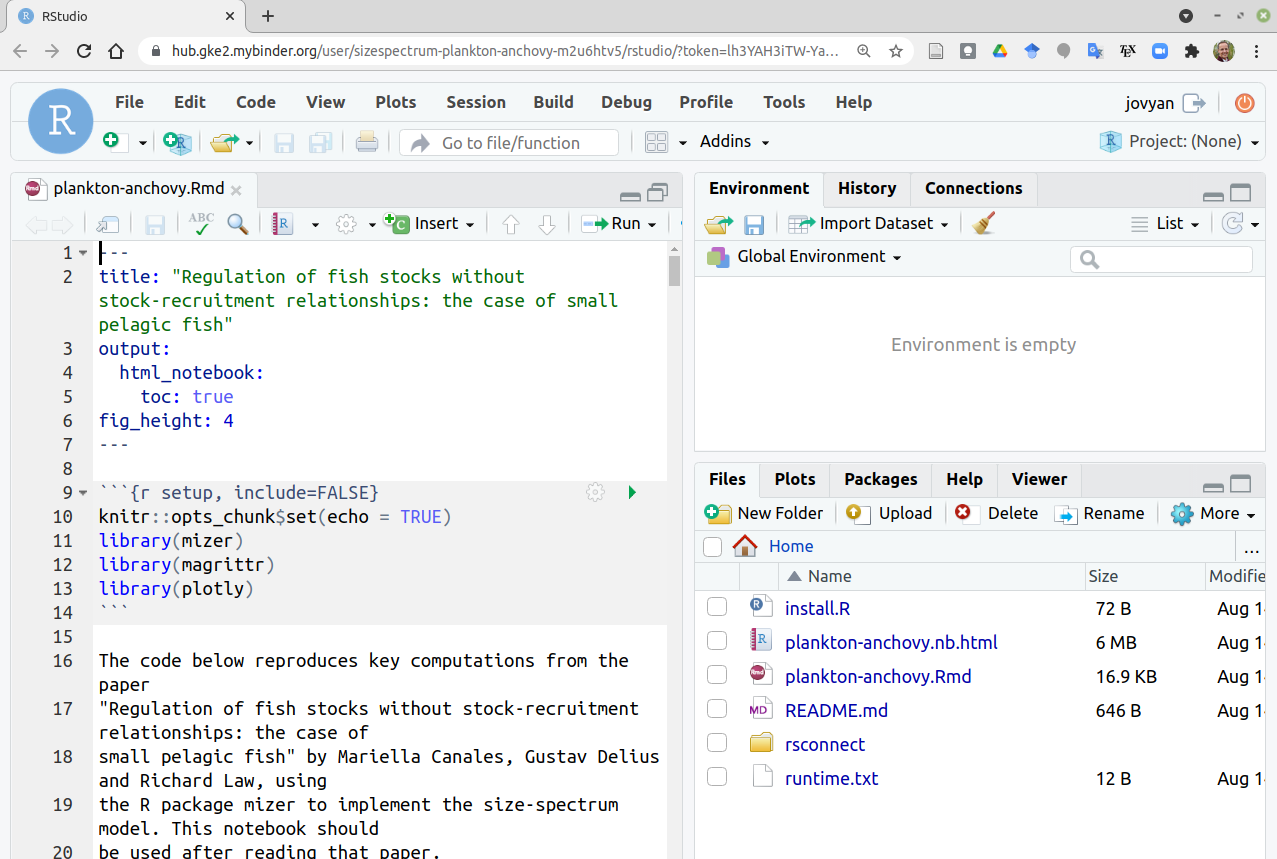mizer blog

Age in mizer
In this blog post, we introduce an extension that allows you to calculate dynamic growth curves and ages at size in mizer. This addition will improve how mizer is calibrated to data and also allows it to be interpreted and compared to age-based models, potentially increasing the utility of mizer in the assessment and advice process.

Mizer 2.4.0
Celebrating Christmas with a new mizer release that makes building realistic multispecies models even simpler.
Don't use von Bertalanffy growth parameters
Beware of the difference between age-dependent growth curves and the size-dependent growth curves used by mizer.

Temperature-dependent rates in mizer
Temperature is an important driver of ecosystem change. Now you can include it in mizer.

Tuning growth curves with a shiny gadget
I present to you a new shiny gadget that makes tuning a model to reproduce the desired growth curves feel like child's play. And this is only a first glimpse of the future of interactively tuning mizer models.

A 5-step recipe for tuning the model steady state
Getting a steady state for your mizer model that agrees with observations is in principle a hard chicken and egg problem. I present the trick that makes it surprisingly easy, with a 5-step recipe. I'll save tips on what to do when the recipe fails for later blog posts.

Reproducible research with mizer, GitHub, RPubs and binder
Share your code in 5 easy steps, so that others can easily reproduce your results and build on your work.

Change model parameters without using @
Mizer provides dedicated functions for changing model parameters. Using them protects you from pitfalls arising from manipulations with the `@` symbol.

Density-dependence in reproduction
The take-home message is that it is important to set the density dependence in your model appropriately and that with the help of the `setBevertonHolt()` function you can easily make changes to the density dependence without spoiling other aspects of your calibrated model.
Welcome to the mizer blog
mizer is now 9 years old. mizer is becoming more social. Time to start a blog.